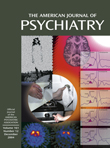Jung: A Biography
This absolutely excellent new biography is the best ever published about Jung. Bair’s previous books include prize-winning biographical studies on Samuel Beckett, Simone de Beauvoir, and Anaïs Nin. Until now the available literature has either been too promotional or fueled by a partisan derogatory intent. On the whole, intellectual historians have allowed themselves mainly to follow the outlines set down by Freud’s 1914 polemic, “On the History of the Psycho-Analytic Movement” (1).
Bair has created a thoroughly engrossing, balanced narrative of Jung’s life, one that is likely to captivate readers who come to it without the blinders imposed by any implicit prejudices. This huge book teams with fresh insights and is genuinely sympathetic to the unique contours of Jung’s life. Families of famous people are the bane of biographers, and the Jung heirs sound unhappy about how Bair deals with the existence in Jung’s life of such important women as Toni Wolff and Sabina Spielrein. She also does not evade the unfortunate subject of Jung’s opportunistic reactions to the coming to power of the Nazis in Germany. We also learn here how Jung cooperated as a secret agent with Allen Dulles, who was working in Switzerland for the Office of Strategic Services (a predecessor to today’s Central Intelligence Agency) during World War II.
Jung’s beginnings were at least as unlikely as those of Freud; they both came from families familiar with financial want. Unlike Freud, however, Jung married an immensely rich heiress. Bair has been successful in recounting the full saga of Jung’s career, even if she concentrates, as any biographer needs to, on the life rather more than the work. She relies on the widest range of authorities and appears to have no tendentious sectarian purposes. The notes at the back of the book run to more than 200 pages and make fascinating reading in themselves.
Even if loyalist Freudians may be pained to see how the tradition of historiography exemplified by Ernest Jones gets repeatedly swept aside, it is about time that his partisanship on Jung be duly rebuked. Much of the post-Freudian literature has been reinventing the wheel that Jung first created. It is a tribute to both Freud and Jung that although they both represented eternal types opposite from one another, they nonetheless were able to work together as long as they could, which came to some 7 years. The persistence of trade union rivalries should not be allowed to distort the story of how these lives get recounted. Jung remains a pioneering psychiatrist whose contributions to humanistic psychiatry have too often been underrated.
1. Freud S: On the history of the psycho-analytic movement (1914), in Complete Psychological Works, standard ed, vol 14. London, Hogarth Press, 1957, pp 7–66Google Scholar



